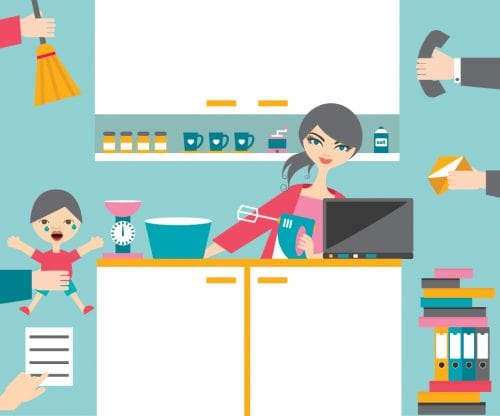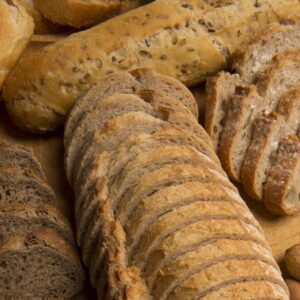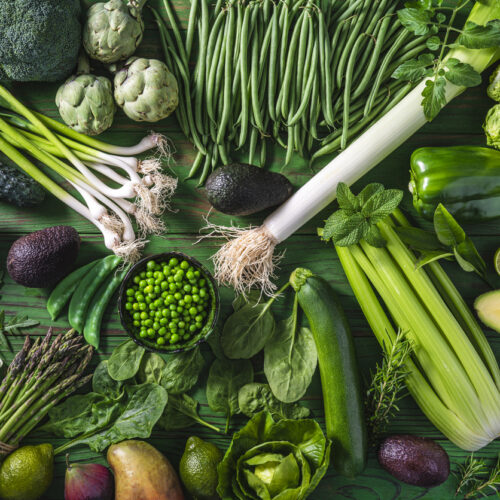
Do you feel like your ‘to-do’ list is never-ending? Healthy Food Guide editor-at-large Niki Bezzant looks at ways to bring life back into balance.
Something strange is happening in our daily lives. Have you noticed, almost every time you ask someone “How are you?”, the response, no matter what they do for a living, is the same: “I’m so busy,” people say. But ‘busy’ is not actually a description of how we are, it’s really what we’re doing. ‘Busy’ has taken over as a default psychological state for many of us.
Good and bad busy
This state of busyness is something life coach Louise Thompson sees often in her clients.
The phrase ’I’m so busy’ has become a bit of a status symbol, Ms Thompson says.
“I think the key here is to look at whether it is ‘good busy’ as in a ‘I’m busy in an active, happy, fulfilled, I have a full life’ kind of way, or ‘bad busy’ as in a ‘I’m totally overwhelmed, got terrible balance, no time for me, no time for my body, I’m just trying to get through each day’ kind of way.”
‘Bad busy’ is an increasingly common state. Perhaps more than any generation before us, many of us now feel like we are constantly juggling. We have work, home, family, social, relationship and community obligations.
We run from one thing to another all day long, before rushing home for food and sleep, just to get up and do it all over again.
Many of us feel like we are tired all the time. Fatigue and stress are extremely common symptoms of modern life.
Competing for ‘no time’
While we often think of busyness as unavoidable, there is some evidence we may see it as something of a status symbol or badge of honour.
Researchers at Columbia University recently released a paper which demonstrated that many people in the US rate a person’s social status as higher when they perceive the person has a very busy schedule. This is linked, they say, to concepts of social mobility.
“The more we believe that one has the opportunity for success based on hard work, the more we tend to think that people who skip leisure and work all the time are of higher standing.”
The researchers’ analysis of ‘humblebrag’ posts on social media showed something similar.
“A substantial number of these brags relate to long hours of work and lack of leisure time,” they reported.
We all recognise these types of posts: “It was worth it not to sleep to get all my deadlines nailed! #sleepwhenyouredead” or “I’ve hardly had time to eat with all this charity work #needvacationnow”.
The humblebrag is a type of self-deprecating but status-building post, intended to draw both sympathy and envy from the reader. It perfectly demonstrates the conflicted relationship many of us have with busyness. We feel overwhelmed by how busy we are, but also worry we’re not achieving enough if we’re not busy.
“It’s really down to what busy means to us individually,” Ms Thompson says.
“’Good busy’ is filled with a blend of things that we love with a great balance. ‘Bad busy’ is crammed with obligations and stress. One is driven by intentionality to fill our days and our lives with things that serve us, the other is, likely, filled by being overcommitted and trying to please too many people and putting ourselves last too often,” she says.
Work-life balance
It’s interesting to note that while we feel we’re busier than ever before, of course, the hours in our days haven’t changed.
The UK Working Lives survey ranked the UK 24th out of 25 comparator economies for how often job demands interfere with family life. And three in five UK employees worked longer hours than they would like to.
Interestingly, Statistics NZ conducts a Time Use Survey every 10 years to learn how Kiwis spend their time. Between 1989 and the most recent survey in the year to 2010, there was no overall change in the total time spent on labour force activities. In fact, people employed full time did 26 minutes less a day, although some groups, such as sole parents with children under 15 years and people aged 45+, did more. The survey found in that 10-year period, the top five activities that New Zealanders aged 12+ spent most of their time on didn’t change: sleeping, paid work, watching television, eating, drinking and socialising with others. These five activities accounted for 69 per cent of an average diary day in 2009 to 2010 and 68 per cent in 1998 to 1999. It would be interesting to see what those numbers are like now.
In Australia, 2016 Census data show two in five employed Aussies are working beyond the eight-hour workday and way beyond it, if their commute is included.
Technology to the rescue
It could easily be argued that technology has changed our time use drastically. Since 2010, the smartphone has become ubiquitous and many of us are ‘on duty’ work-wise, able to respond to emails and calls, at any time of the day or night. And social media use is now a constant, and often time consuming, part of daily life.
“Technology is the ultimate double-edged sword around busyness,” Ms Thompson says.
In many ways technology has freed up huge amounts of time.
“Look at washing machines and dishwashers. My granny used to have Monday as ‘wash day’ and it would take the entire day. She had a mangle she turned by hand, not a tumble dryer. We are so unbelievably lucky to have as much technology at our disposal that has saved us so much time and energy,” she says.
So, it would seem we should have more free time, not less, but that’s not necessarily the case.
“It’s what we are using that surfeit time for that is the issue,” Ms Thompson suggests.
“Are we using it purposefully to take more time in nature, to connect in real life with people who are important to us, to exercise more…or are we aimlessly checking Facebook multiple times a day and getting sucked into comparison-itis?”
We could use that time to create the space and balance we seek, she says.
Health effects of too much to do
Busyness can affect our health in negative ways. Health concerns associated with feeling overwhelmed or stressed include anxiety, depression, insomnia, high blood pressure, cardiovascular disease and even obesity. There’s emerging evidence that stress affects our gut bacteria. And being stressed can often mean we don’t make eating well and exercising a priority, ironically decisions that make us feel more stressed and overwhelmed.
Strategies to help
Good busy vs bad busy
Understand being busy isn’t always bad. Being absorbed in a task or fully occupied in something productive can be hugely fulfilling. It produces what psychologists call ‘flow’ – a feeling of complete absorption and focus, leading to great feelings of satisfaction.
The more we can achieve this, the less stressed we are likely to feel. ‘Bad busy’, on the other hand, is when we’re distracted, our thoughts are scattered and we feel like we never get to the end of our to-do list. This causes stress.
Write down, prioritise and be realistic
Getting all the things we need to do out of our heads and on to paper can be a useful exercise. But we’re likely to feel more anxious and stressed if we feel we’ll never get to the end of the list. Think realistically about how long a task is going to take you and allocate that much time.
Fewer tasks in a day is better than having a long list of unachievable things.
Learn to say no
Once you’ve written your to-do list, think seriously about which things you really need to do. Many of us go through our days partially on auto-pilot, doing the same tasks over and over, whether or not they are important. When more tasks come along we simply add them to our list. It can be worthwhile to examine our days and cross off the tasks that are really not productive.
“If you are feeling out of balance and overwhelmed, constantly feeling like you don’t have enough time, the brutal truth is that you do not have a time problem, you have a priority problem,” Ms Thompson says.
She recommends being ruthless about your priorities in a way that supports better balance for you – and there may be some hard choices that involve saying ‘no’ to things you thought you had to do.
Be consistent
Once you’ve prioritised what’s important, be consistent.
Keep making choices that support life balance. It’s exactly the same as healthy eating.
“You don’t eat one salad for lunch and you are done, healthy eating nailed. It’s about what you choose with consistency every meal over the long term.”
Spend time offline
Email and social media are distracting and can suck up our time. If you have something important you need to focus on, turn off your email. Using an auto-reply – “I’m working on a deadline at the moment and won’t be checking emails regularly. I’ll come back to you at the end of the day” – can be hugely liberating. People’s expectations will be adjusted about when you can come back to them (not instantly).
Social media will still be there when you have time to go back to it.
Value sleep
We can’t function without proper sleep. It is worth prioritising. Thinking we can catch up on sleep later or at the weekend is a myth, according to sleep experts. Our performance goes down when we are chronically sleep-deprived, even when we try to compensate with longer sleeps. Try getting at least seven hours a night, and keep sleep and wake times the same, even at weekends.
Make time for exercise
The de-stressing benefits of exercise are well established.
Making some form of exercise one of our important tasks, even when it seems like we don’t have time, will pay off. Moving our bodies can do wonders for our mental state and help us be more productive.
Stop saying ‘I’m busy’
It’s a subtle psychological shift, but when we stop telling ourselves and others how busy we are, it can help us to feel calmer and, strangely, less busy. Think of other answers to the question, ‘How are you?’.
Beating busyness: Tips from the world’s healthiest people
The Columbia University research that found Americans see busyness as a sign of status also found the opposite is true for other communities. Italians, for example, see less work and greater leisure time as more of a status symbol. The longest-living and healthiest communities around the world, known as the Blue Zones, are remarkable for their lack of stress. Some of the things they have in common in their approach to life are worth contemplating.
Have a sense of purpose
The Okinawans call it ‘ikigai’, which translates to ‘why I wake up in the morning’. Knowing your sense of purpose is worth up to seven years of extra life expectancy.
Keep loved ones close
Successful centenarians in the Blue Zones put their families first. This means keeping ageing parents and grandparents nearby or in the home, which lowers disease and mortality rates of children in the home too. Blue Zoners also commit to a life partner, which can add up to three years to life expectancy, and they invest in their children with time and love (who in turn take care of them when the time comes).
Surround yourself with good people
The world’s longest living people chose, or were born into, social circles that supported healthy behaviours, according to Blue Zones research. There’s an element of contagiousness to states such as obesity and happiness – these can spread within social groups. Being part of a community that values healthy habits can help you become healthier and less stressed too.
Have faith
Most of the Blue Zone communities share a strong religious faith. Being part of a faith-based community can ease stress and add years to life, according to researchers.
Downshift
Blue Zone communities have routines built into their days to beat stress. Okinawans take a few moments each day to remember their ancestors, Adventists pray, Ikarians take a nap and Sardinians do happy hour.
Source: The Blue Zones, Dan Buettner
Article sources and references
- Bellezza S et al. 2017. Conspicuous consumption of time: When busyness and lack of leisure time become a status symbol. Journal of Consumer Research 44 DOI: 10.1093/jcr/ucw076https://academic.oup.com/jcr/article/44/1/118/2736404
- Cohen DA et al. 2010. Uncovering residual effects of chronic sleep loss on human performance. Science Translational Medicine 2:14https://stm.sciencemag.org/content/2/14/14ra3
- Blue Zones, Power 9, bluezones.comhttps://www.bluezones.com/live-longer-better/
- Work-Life Balance in Australia. McCrindle, accessed 30 November 2020https://mccrindle.com.au/insights/blogarchive/worklife-balance-in-australia/
- UK Working Lives: The CIPD Job Quality Index, accessed 30 November 2020https://www.cipd.co.uk/Images/uk-working-lives-summary-2019-v1_tcm18-58584.pdf
www.healthyfood.com










